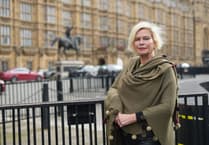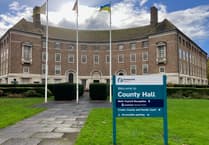PLANNING officers have been asked to "sex up" a study on renewable and low carbon energy opportunities in West Somerset after claims that it was too boring.
The report by freelance planning officer Stuart Todd will form part of the evidence base for the district's new Local Plan.
But when it was unveiled to West Somerset district councillors at a meeting this week, it failed to excite.
Cllr Chris Morgan told members of the Local Development Panel, of which he is vice-chairman, that it was a good study.
But he said the low carbon economy was "very boring" and a subject that was hard to get people interested in unless it affected them personally.
"You switch your lights on but you don't really care where the energy comes from as long as you don't have to pay too much for it," said Cllr Morgan.
After endorsing the study and its findings at their meeting on Tuesday, panel members approved its publication on the council's website.
But Cllr Morgan said: "I really think if we want to get people interested and educated in low carbon and renewable energy, we have to sex this up.
"We do need to get people interested but I think these facts and figures are really going to turn people off."
Principal planning policy officer Toby Clempson said he accepted Cllr Morgan's comments but pointed out that the study was merely a piece of evidence to inform the Local Plan process.
"It is raw material to inform the debate. It is a starting point to set out the parameters," he said.
But Cllr Morgan responded: "If it is a starting point to open discussion, it has to be interesting."
Mr Clempson agreed, admitting that the raw information as it was packaged up was "not very inspiring".
Cllr Ian Melhuish told the meeting that if the study was put on the website, the chances of anyone reading it were very low.
"If they get past page two they will lose the will to live."
Councillors unanimously backed a suggestion by Cllr Keith Ross that a "readable sexy synopsis" should be posted on the website, with a link to the full report.
Report author Stuart Todd said he accepted councillors' comments but it was a difficult subject to "sex up".
He said the study looked at local, strategic and national policies, current energy consumption and future demand, the costs of meeting carbon dioxide reduction targets and an appraisal of the different technologies.
Heat pumps, solar photovoltaic, onshore wind, hydro, solar thermal and biomass technologies came under the spotlight.
Among the study's key findings was that energy consumption was likely to continue to fall slightly, largely due to improvements in the efficiency of building materials and the installation of energy efficient measures.
The research also revealed that energy consumption for domestic and non-domestic properties is currently around 952 GWh per year across the whole district, including the area of Exmoor which falls within West Somerset.
But the maximum renewable and low carbon energy generating potential in the local authority planning area from the resources assessed in the study equates to just 442 to 500 GWh a year.
Mr Todd said that if the council was to consider applying a target for renewable energy generation similar to that of the national level of 15 per cent by 2020, the district would need to generate around 45.9 GWh of its annual energy from renewable resources - around eight to ten per cent of the maximum resource potential in the area.
The study makes a series of recommendations, including the creation of an "energy hierarchy" for new development, an energy opportunities map, the introduction of low and zero carbon energy viability and feasibility assessments for development planning applications and investigation into the viability or desirability of a local energy infrastructure fund.
Other suggestions include exploring opportunities for the council to generate and sell its own electricity - considered in the past but rejected on cost grounds - and looking at ways to help properties not linked to gas supplies.
-and-key-stage-one-team.jpeg?width=209&height=140&crop=209:145,smart&quality=75)
.jpeg?width=209&height=140&crop=209:145,smart&quality=75)


Comments
This article has no comments yet. Be the first to leave a comment.